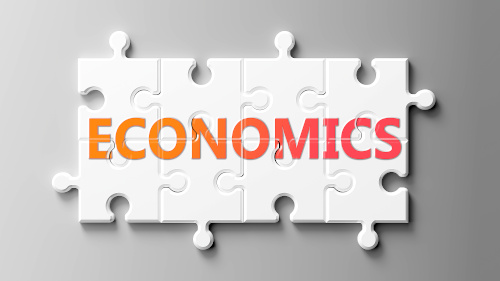When 17-year-old Jerry Marnell thought about heading off to college, economics seemed like an enticing major to study. Between self-starting his own production company and serving as president of a local club, he knew basic business tenets were vital to success and he was interested in learning more about the subject.
But like for so many young people across the country, Jerry’s high school in California’s Monterey Bay area did not offer economic classes. He had no way of knowing for certain if economics was something he’d like to pursue, or how economic principles touch every facet of our lives—from the decisions made by individuals and companies to the performance of regional, national, and global economies.
As students return to class this back-to-school season, many parents may think their own teenagers will be taking an economics course, given the topic’s importance. For the last several years, however, only half of the U.S.—a stark 50 percent of states—require that high schools even offer an economics class as part of the curriculum, according to the Council for Economic Education. Meanwhile, 27 states mandate that personal finance courses be offered – a number that has nearly doubled since 2011. Unfortunately, economic literacy has taken a back seat when it comes to young Americans because many policy makers confuse the discipline of economics with financial literacy.
Oftentimes, the terms “finance” and “economics” are used interchangeably despite being very distinct disciplines. Finance relates to the techniques and tools for managing money, while economics focuses on the much bigger picture of decision-making, scarcity, and allocation of resources.
So, while financial lessons deal with money’s organization and the related financial systems and instruments, economics provides an individual with the intellectual tools to guide decisions related to the use of their money.
Related:
3 reasons literacy is essential in child development
How problem-based learning helped boost my underserved students’ engagement
- Are substitutes the answer to the teacher shortage? - June 13, 2023
- Preparing for ransomware attacks begins with education - June 13, 2023
- How to use UDL-inspired technology to reengage students - June 12, 2023

